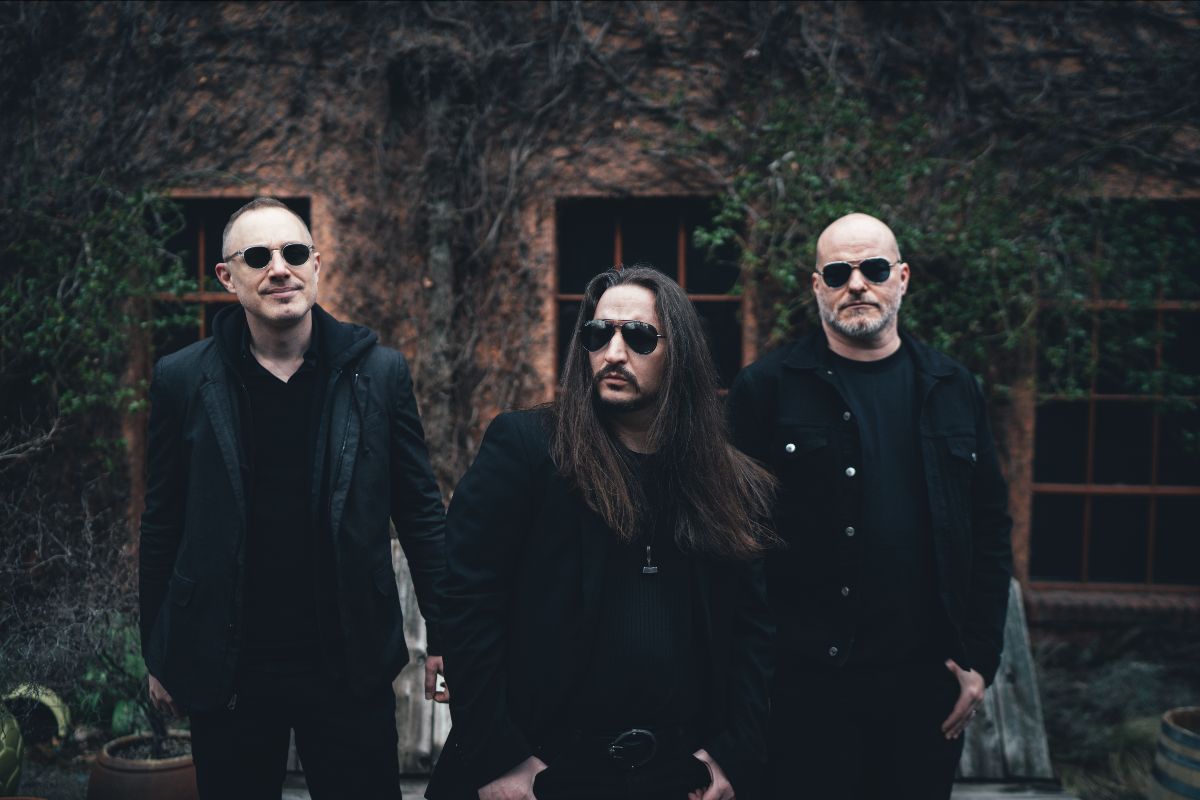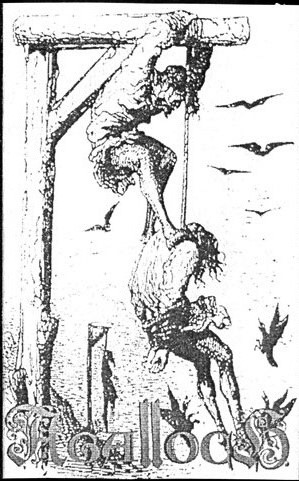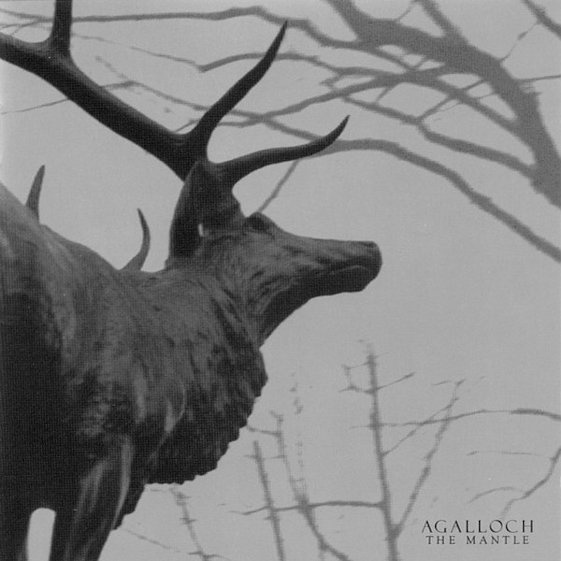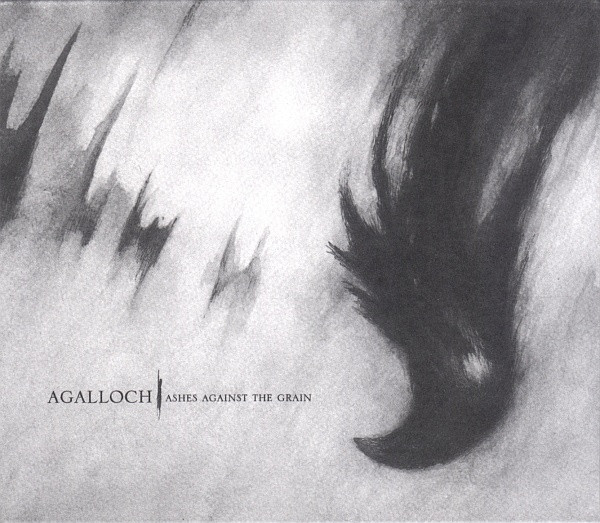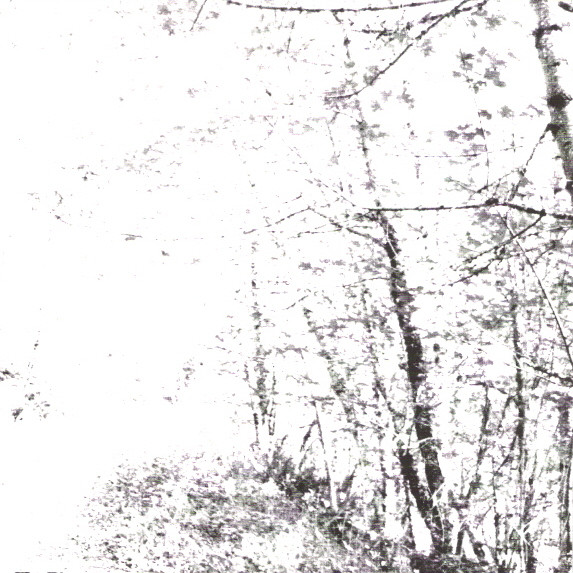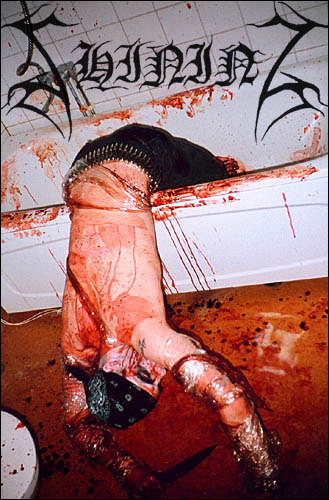As the year comes to a close, I find it fitting to do one of my own 'Best of 2008' style polls that so many are inclined to do. Unfortunately, due to no longer having all the time in the world, several key albums were completely ignored by me this year (the new Shining, Evergrey, Lifelover, Origin, the debut Jeff Loomis, to name but a few). Other albums just didn't get a profound enough listen to provoke an opinion (the new Edguy) and I'm sure I'm forgetting some of the more obscure releases I listened to so this list is far from substantial but I feel I must pen something down before the close of the year. Naturally, only bands I enjoy (or enjoyed) have been nominated here.
Best Release of 2008:
Opeth ~ Watershed
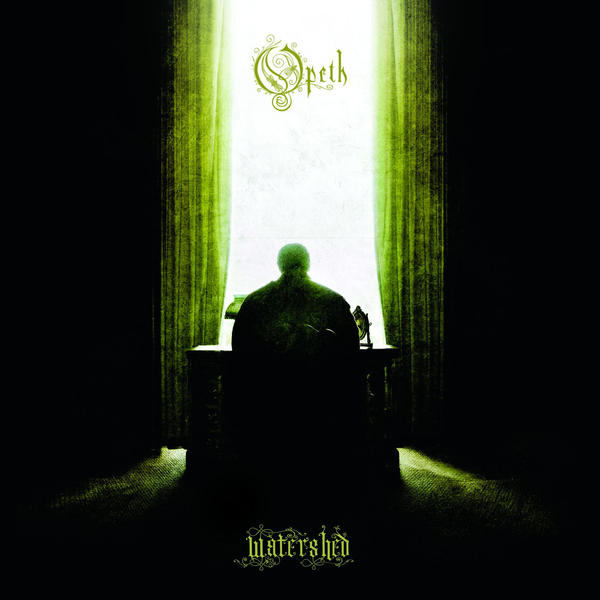
2008 was a poor turnout in regards to high-quality metal albums. I cannot help but feel that Opeth win by default.
Watershed was fairly outstanding, with the band pushing their own boundaries in terms of experimentation ('The Lotus Eater' especially). The opening number, 'Coil', featured a female vocalist in its brevity and it seems near suspicious that a band like Opeth have not employed a female guest singer in the past. However, I felt 'Derelict Herds', one of the bonus tracks, was probably the strongest song on the album. It was wild, convincingly heavy and more colourful than the other songs on the opus. Why this is not on the main body of the album seems like a mistake. Nonetheless,
Watershed is an aggressive piece of progressive art, another step in the right direction for Opeth.
Honourable mentions: Unleashed ~ Hammer Battalion; Cynic ~ Traced in Air
Best Song of 2008
Opeth ~ 'Coil'
It is a gentle track, completely acoustic with female vocals. For Opeth, the song is incredibly concise and indeed leaves the listener begging for more but this track acts as a prelude to the remainder of the album. There is a folk feeling here, no doubt produced from the acoustic method utilized. The song is dense in atmosphere and sweetly sung by both Akerfeldt and the female vocalist, two voices that compliment each other in an unconventional way. It sounds pure and untainted but there is a sense of foreboding woven within.
Honourable mentions: Moonspell ~ 'Scorpion Flower'; Kampfar ~ 'Vansinn'Best Cover Art of 2008
Amon Amarth ~ Twilight of the Thunder God
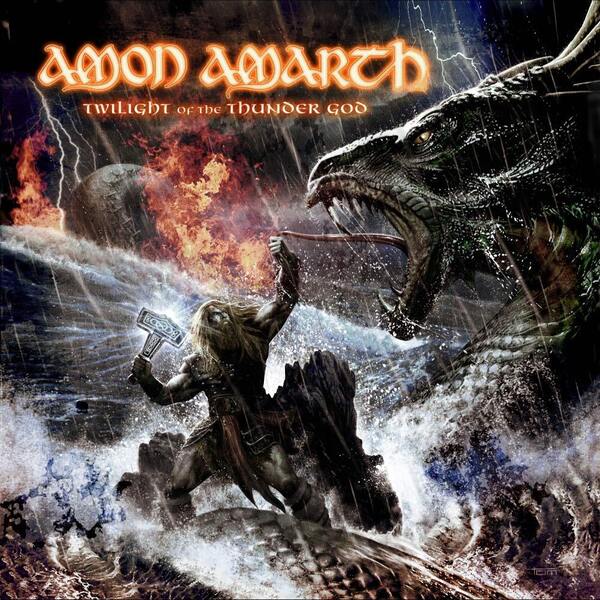
This is certainly the most striking image from cover art this year. I feel that most modern album arts seem to be some thoughtless and supposedly mature Photoshopped image which could have been produced by anyone with the program, or some 'minimalist' piece of forgettable art. I believe the cover art should be a visual representation of the music and Amon Amarth's
Twilight of the Thunder God actually harvested some interesting musical techniques which saw the Swedes' melodic death metal progress, rather than stick to the same old tried and tested formula the band are more than comfortable with. The album art sticks out more than anything pictorial the band have released as part of their discography too. This picture of Thor battling Jormungand after he fished him up, lifted directly from Norse mythology, is nothing short of powerful, probably to underscore the potential power of the CD. The colours are bold and dark but the use of white is what makes it so tenacious to behold. The attention to detail makes the realism that much more compelling even though the average person knows such a tale could never be true. Some may complain about the image being over the top but when you're dealing with (melodic death) metal centred around Vikings...well, nothing more needs to be stated.
Honourable mentions: Asmegin ~ Arv; Darkthrone ~ Dark Thrones and Black FlagsBest Lyrics of 2008
Opeth ~ 'Coil'
Again, Opeth steal this victory by default because I have not really had the time to digest the lyrics of much else this year. Over the years, I feel Opeth's lyrics are denaturing in quality. Most of the lyrics on
Watershed seem banal for a band such as Opeth
but the lyrics belonging to 'Coil' stick out, probably because its too short to be ruined by slap-dash work. I suppose this is a biased call again because the lyrics remind me of far too many personal situations and make me nostalgic. They seem somewhat arcane (who is the man and who is the woman), completely clouded by mystery. It seems vaguely stylish the way the words of the man are mirrored for the woman's use. Above all, the lyrics corroborate the mood of the music. Well chosen stuff.
Best Newcomer of 2008
The Rotted ~ Get Dead or Die Trying
I cannot think of many outstanding bands that made their debut this year (I know there is Trinacria but frustratingly I cannot get my hands on their album at all). Alas, I am cheating by putting The Rotted as best newcomer, seeing as they changed their name from Gorerotted but nonetheless, their 'debut' album
Get Dead or Die Trying is a great slab of death metal. The presence of punk-sourced riffs is prevalent throughout the entire release, making it gritty and raw compared to straightforward death metal or even most standard grindcore acts. The catchy nature of Gorerotted remains, which marks songs like 'Kissing You With My Fists' and 'Angel of Meth' more memorable. Songs like 'The Howling' and 'The Body Tree' are unexpectedly aggressive and literally smack the listener in the face. This album is far more commendable than Gorerotted's final album
A New Dawn for the Dead and should be picked up by anyone who thought Gorerotted were, at the least, amusing. The tongue-in-cheek element of Gorerotted has been severely eroded in The Rotted but
Get Dead or Die Trying seems more so than
A New Dawn for the Dead.
Honourable mention: Warrel Dane ~ Praises to the War MachineBest Live Show of 2008
Queensryche, Leeds Metropolitan University, Leeds, 15th June
Usually, I take my camera to every live show I attend, however, this abnormal hike to Leeds to catch Queensryche live forced me to forget it. Of course I would pay for it, this being the best gig of the year! There was no support act and the band proceeded to perform both of their
Operation Mindcrime albums back to back. The albums were acted out so it was more akin to watching a musical than the average metal spectacle. I was completely blown away. Geoff Tate's voice was on top form, despite circulating comments about how poor it is these days. The costume design, the stage design, the acting ~ it was all superlatively executed, culminating in a compelling watch. The only way it could have been improved was if Dio himself was there to perform his guest vocals (and the backing vocals were distributed more effectively). The encore was composed exclusively of
Empire tracks, that being my favourite Queensryche album and one of my favourite releases of all time. This was the first time I had caught Queensryche live (various impediments obstructed me in the past) and it was mind-blowing. I had to see them in Leeds because the London show clashed with Hellfest and there was no way I was missing Queensryche this time. There was the option to pay an extra £30 or so to obtain the VIP package, which gave you a few Queensryche stickers, earlier access into the venue by fifteen minutes and
an
opportunity to meet the band. I had no interest in any of this but the thought of the VIP purchasers getting right at the front and taking up all the best positions was frustrating. However, being up North, there were barely any VIPers and they spent their extra fifteen minutes at the bar or cloakroom, it seemed. The front row was entirely void of life when I got in there. It certainly would have been a different story in crowded London, not to mention the stage would have been larger and less intimate. Great stuff.
Honourable mentions: Helheim, Purple Turtle, London, 10th March; Sabaton, Purple Turtle, London, 5th December
Best Festival of 2008
Hellfest Open Air 2008, Clisson, 20th ~ 22nd June

The 2007 edition of Hellfest was a total disaster in terms of organisation and general appeasement of the audience and bands. With clashes, poor toilet (even for festival standards)and camping services on top of the uncontrollable weather conditions, many a fan and band swore to never return to the festival again. I was lured back with a stellar line-up and the promise of an improved festival over all. Everything was drastically improved, flawless in fact. There were more fatal clashes this year compared with last but I had already seen the bands I was forced to skip. The line-up crushed all the other European festivals especially when you factored in the clash deficiency that other festivals cannot avoid (take that, Wacken!) and the number of attendees was very small for a weekend long open air metal festival in a place as easy to reach as France (around 12,000 per day). Everyone I conversed with who attended the 2007 and 2008 editions of the festival agreed that this year was far superior and in terms of festivals, it was amazing too. I caught some of my personal favourite bands, including Helloween and Katatonia, caught live bands I'd never bother to see headlining now in London like Motorhead, and caught talent that would never come across to England for various reasons such as Alchemist and Haemorrhage. Of course I did the obligatory discovering new bands and talking to some of the ostensibly craziest people on the planet.
Honourable mentions: Bloodstock Open Air, Catton Hall, 15th ~ 17th August; Damnation Festival, Leeds, 22nd November
Biggest Release Disappointment of 2008
Judas Priest ~ Nostradamus

Judas Priest are one of my favourite bands and when I heard they were creating a full-length that would spread across two CDs, I was apprehensive. The problem with bands doing this is the possibility of not having enough ideas to spread across two discs, like Therion and their
Gothic Kabbalah album. Priest fell into this category. I love
Angel of Retribution but when I heard the song 'Nostradamus', the first track the band officially released for audience consumption, I was concerned that the band might be recycling
Painkiller stylings to satiate the high expectations they were anchored to. When I got the album, I listened to both discs numerous times before concluding that the shade of
Painkiller were absent but the album spent all of its tracks building up to some kind of overwhelming climax which did not really surface. On the first disc, the 'climax' arrived in the form of 'Persecution'. It was a decent track but certainly not worth the wait. On disc two, the high point was the title track and this was followed by 'Future of Mankind', a song that stretched to over eight minutes when it could easily have been condensed. Disc two was certainly inferior to disc one. Disc one had some highly commendable solos. Another issue with
Nostradamus was that the sub-songs that essentially linked the proper full-length songs together were far too common and only isolated the songs and dislocated the flow of the album over all. It was like watching a film with far too many intermissions in between. This was worse than all those brutal death metal bands who insist on having a sample at the start of every track. I hope Judas Priest can pull out something more impressive next time round. This album was hotly anticipated for a couple of years. A real disappointment.
Honourable mentions: Keep of Kalessin ~ Kolossus; Psycroptic ~ Ob(Servant)
Most Embarrassing Release of 2008
Cryptopsy ~ The Unspoken King
Cryptopsy's legacy as one of the greatest technical death metal bands was horrendously besmirched when the band released their new album with their new vocalist. Animosity was stirred when the new growler, Matt McGachy, was announced as Lord Worm's replacement before this album was released after a simplistic vetting process informed the death metal scene that McGachy's past endeavours were for that of a metalcore band. Rumours flew about that Cryptopsy would turn metalcore but I reserved my opinion for when the album was released. The addition of a female keyboard player into the band's line-up additionally raised eyebrows. The first song the band released was 'Worship Your Demons' and it was deathcore! Sure, Flo Mounier's drumming was top form but the song was undeniably deathcore, complete with metalcore boat-ruddering growls. When
The Unspoken King was officially released the entire Cryptopsy fanbase was in utter dismay. 'Worship Your Demons' was actually the best song on the album. The rest of the pestilence included metalcore/death metal hybrid guitar riffs, an insignificant bass and worst of all clean vocals in the whiney emo style. Everybody hated it and by everybody, I mean every metal fan. For most universally detested metal albums, I generally come across at least one defendant whether online or in person but I am yet to meet the individual willing to stand up for this reprehensible effort. Cryptopsy continued to grave-dig for themselves; the female keyboard player they recruited was dropped from their ranks because they did not use the keyboards enough on
The Unspoken King. This was a smart move even though it got them ridiculed by their fanbase further for making such an indescribably questionable decision in the first place but all the promotional pictures had her marketed more so than the vocalist. A grasp towards sex appeal to sell more? Mounier would deny it. I conducted an interview with him at the close of the year where he denied he had ever heard metalcore, even though over the past few years, Cryptopsy have been touring North America with countless metalcore bands. Mounier's fall from grace continued before my interview with rant after rant, proclaiming all
The Unspoken King detractors were George Bush supporters among other childish insults. The band eventually went as far as recording the track 'Dinner Time' which begins with an apparent ex-Cryptopsy fan ranting about how the band have sold out and how their new effort is a disgrace to death metal. His monologue is interrupted by his mother who vehemently knocks on the door, wailing at her son to get off the Internet because it's dinner time. Mounier just needs to learn to ignore the people that make him feel bad. Not even Metallica reacted as violently to their fanbase after releasing
St. Anger.
Honourable mentions: Kataklysm ~ Prevail; Communic ~ Payment of ExistenceMost Overrated Release of 2008
Krisiun ~ Southern Storm
I don't really converse with metalheads much but it seems that Krisiun's
Southern Storm is commanding attention. I cannot understand what people see in this release; I have a theory that most of those worshipping it have not heard any previous Krisiun efforts prior to this one. Krisiun are doing nothing new in the slightest with this full-length, severely lacking variation between songs and doing nothing new for their discography. I could handle
AssassiNation but this release is totally redundant as far as death metal goes. The Sepultura cover is the best part of the album, simply because it is discernible among the rest of music here. Generic brutal death metal at its finest (after that inaudible static-guitar rubbish).
Honourable mention: Eluveitie ~ Slania
These are all the categories I can care to compose at the moment. If I think of anymore, I will post them here but I doubt it.
~ ~ ~I look forward to hearing the releases of 2009. Hopefully it will be a superior year to this one. The forthcoming Pain of Salvation, Megadeth, Katatonia, Freak Kitchen, Scythe, Kreator (which has already leaked), Slayer, Cannibal Corpse, Suffocation among countless others will at least give me enough material to reproduce an updated version of these 'awards'. Fingers crossed anyhow.
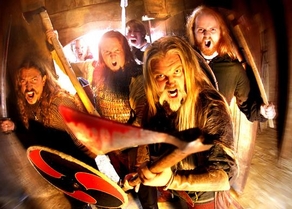

 It is not just black metal missing on this album that many other Viking metal bands feel comfortable with; the lack of keyboards should be noted. This is always interesting idea for Viking metal bands because keyboard deduction can forces these bands to be more creative and can drastically alter the mood of the music, for example, in the case of Kampfar it allows the music to adopt a more aggressive visage which compliments the black metal accents. Keyboards feature in many folk/Viking metal bands because it makes it significantly simpler to contribute an extra dimension to the music with symphonic metal keyboard chords. Nonetheless, Svartsot achieve this with their array of folk instruments to create some atmospheric and adventurous attributes in their music. The keyboard would only serve as a distraction from other instruments.
It is not just black metal missing on this album that many other Viking metal bands feel comfortable with; the lack of keyboards should be noted. This is always interesting idea for Viking metal bands because keyboard deduction can forces these bands to be more creative and can drastically alter the mood of the music, for example, in the case of Kampfar it allows the music to adopt a more aggressive visage which compliments the black metal accents. Keyboards feature in many folk/Viking metal bands because it makes it significantly simpler to contribute an extra dimension to the music with symphonic metal keyboard chords. Nonetheless, Svartsot achieve this with their array of folk instruments to create some atmospheric and adventurous attributes in their music. The keyboard would only serve as a distraction from other instruments.



